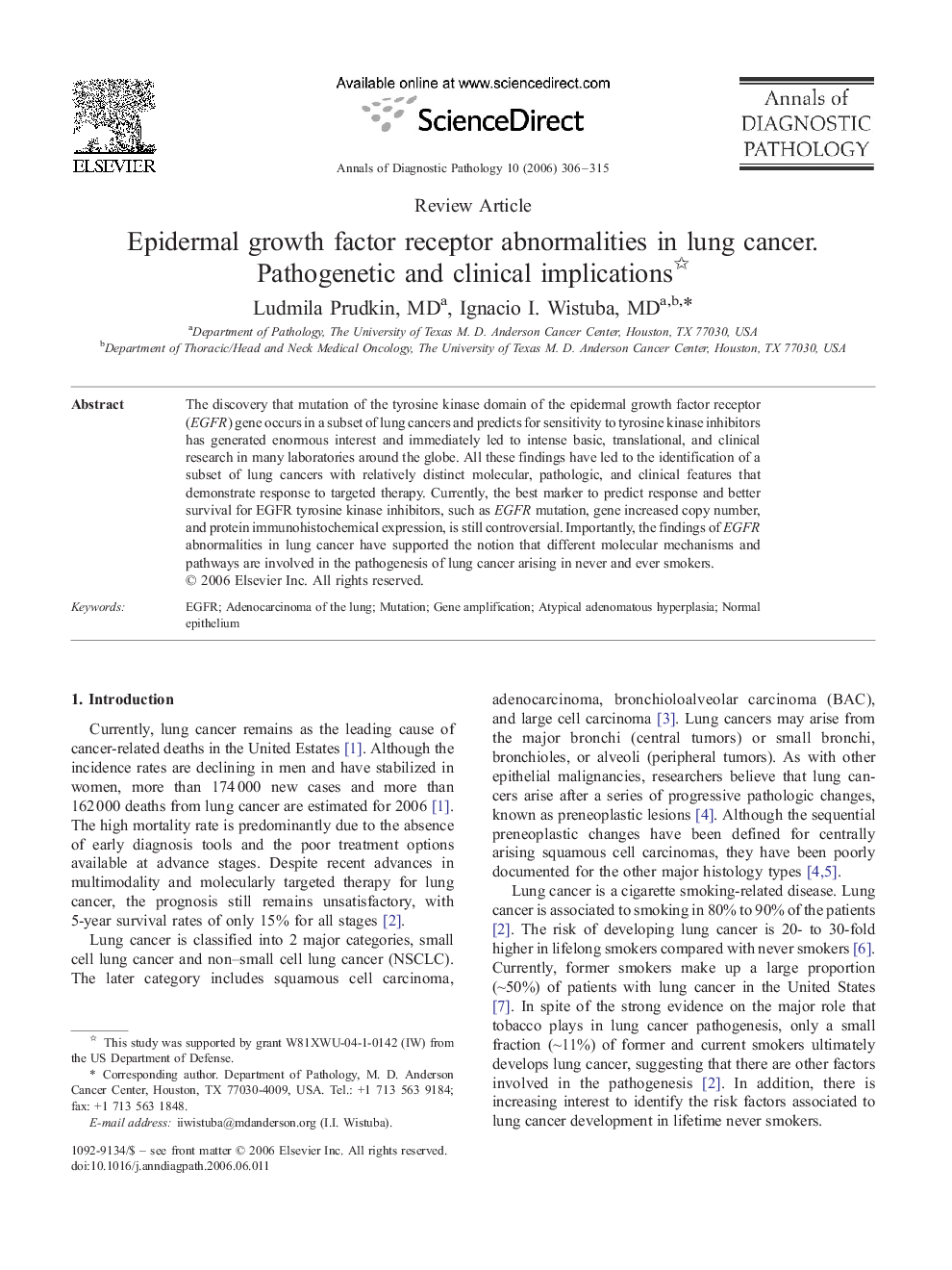| Article ID | Journal | Published Year | Pages | File Type |
|---|---|---|---|---|
| 4130728 | Annals of Diagnostic Pathology | 2006 | 10 Pages |
The discovery that mutation of the tyrosine kinase domain of the epidermal growth factor receptor (EGFR) gene occurs in a subset of lung cancers and predicts for sensitivity to tyrosine kinase inhibitors has generated enormous interest and immediately led to intense basic, translational, and clinical research in many laboratories around the globe. All these findings have led to the identification of a subset of lung cancers with relatively distinct molecular, pathologic, and clinical features that demonstrate response to targeted therapy. Currently, the best marker to predict response and better survival for EGFR tyrosine kinase inhibitors, such as EGFR mutation, gene increased copy number, and protein immunohistochemical expression, is still controversial. Importantly, the findings of EGFR abnormalities in lung cancer have supported the notion that different molecular mechanisms and pathways are involved in the pathogenesis of lung cancer arising in never and ever smokers.
